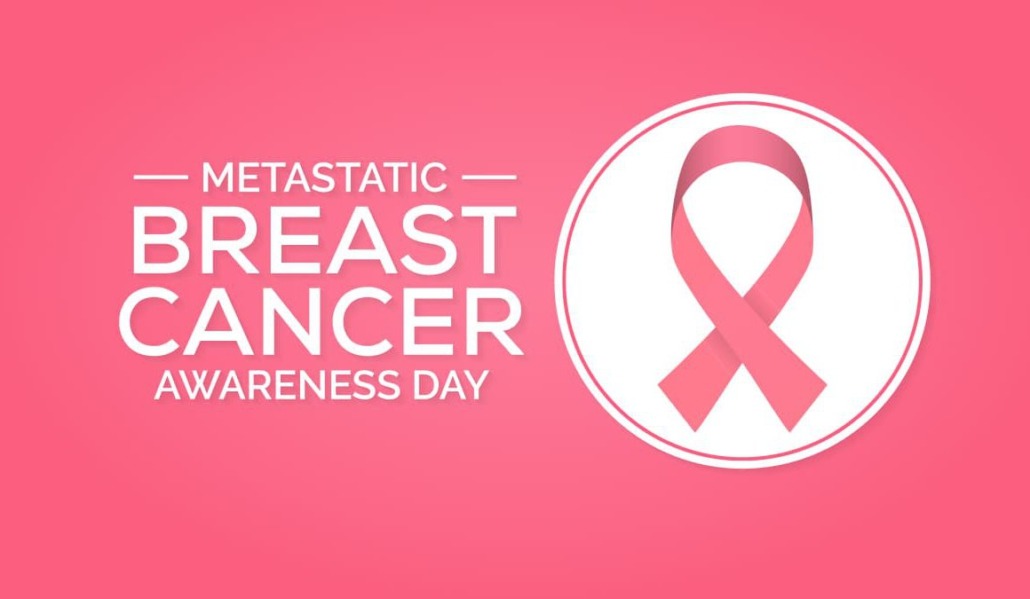There are hundreds if not thousands of awareness days, weeks and months that are designed to raise public understanding for a whole range of topics. Some days are celebrations, others are designed to inform and deliver change.
Many of these dates are related to healthcare and specific conditions such as cancer, heart disease and diabetes to name just a few.
Some conditions also have more than one date associated with them. Breast Cancer Awareness Month takes place during October but there is also Metastatic Breast Cancer Awareness Day.
WHEN IS METASTATIC BREAST CANCER AWARENESS DAY?
Metastatic Breast Cancer Awareness Day takes place on 13th October each year. It was introduced in 2009 after members of the Metastatic Breast Cancer Network in the US lobbied Congress successfully to have it included in Breast Cancer Awareness Month.
While Breast Cancer Awareness Month generally focuses on screening and diagnosis, Metastatic Breast Cancer Awareness Day focuses on living with a disease that has spread to other organs in the body and currently has no known cure.
Its purpose is not just to build awareness but to help promote research and provide to support to individuals who have been diagnosed with the disease.
WHAT IS METASTATIC BREAST CANCER?
Like most cancers, breast cancer has many different types which respond to medicines in different ways.
Ductal cancer, for example, develops when cancerous cells develop in the network of passageways that transport milk to the nipples. This type of cancer can break through the wall of the ducts and form hard tissue that can be easily recognized as a lump in the breast.
Lobular cancer, on the other hand, forms in the structure that produces breast milk and can grow without forming a hard mass or lump.
Metastatic breast cancer is diagnosed when cancer moves into the lymphatic channels and bloodstream and migrates to other areas of the body such as the lungs, bones, liver and even brain. Cells can easily move to other parts of the body but only a few types of cancer can grow outside of the breast.
In some cases, metastatic breast cancer can be discovered at the time of the first diagnosis. More commonly, however, it occurs later, even after someone has been declared ‘cured’ from their initial early-stage cancer.
According to cancer.net:
- Nearly 280,000 people are diagnosed each year with invasive breast cancer in the US alone.
- The majority of people who die because of this disease do so after developing metastatic breast cancer.
- Metastatic breast cancer is discovered in 6% of cases at the time when breast cancer is first diagnosed.
- The 5-year survival rate for metastatic cancer is 27% for women and 22% for men.
- Only about 7% of research funding for breast cancer is devoted to metastatic breast cancer.
WHY DOES METASTATIC BREAST CANCER HAPPEN?
While we know the mechanism of how breast cancer spreads to other parts of the body, we don’t fully understand why.
There needs to be a lot more research undertaken to uncover why some people are more at risk than others and this is what events like Metastatic Breast Cancer Awareness Day partly focus on promoting.
HOW IS METASTATIC BREAST CANCER TREATED?
Metastatic breast cancer is considered Stage IV and is treatable but not curable. A lot depends on where the cancer has spread and a variety of different medical approaches are used including chemotherapy, targeted therapies, surgery and radiation therapy.
Focus is on managing the cancer and making sure that it doesn’t spread rather than removing it completely.
LIVING WITH METASTATIC BREAST CANCER
As there is currently no cure for metastatic breast cancer, putting in place the right medical management is essential. After initial treatment, depending on the area or areas affected, a patient will have regular 3 monthly scans and checkups.
There is a much more long-term, management rather than direct cure approach to metastatic cancer compared to general breast cancer. This can often cause anxiety especially in the run-up to the next scan where an individual must wait and see how their disease is ‘progressing’.
People with metastatic breast cancer often look well and it can be difficult for others to understand what they are going through. The disease can mean individuals develop problems such as anxiety and depression making it difficult to cope. Counselling and joining local networks and support groups can help.
INCREASED AWARENESS
13th October is designated as Metastatic Breast Cancer Awareness Day and it is focused on raising the profile of the disease in the public perception.
It gives individuals the chance to tell their stories, share information and build greater awareness about the challenges they face and why more research is so necessary.









